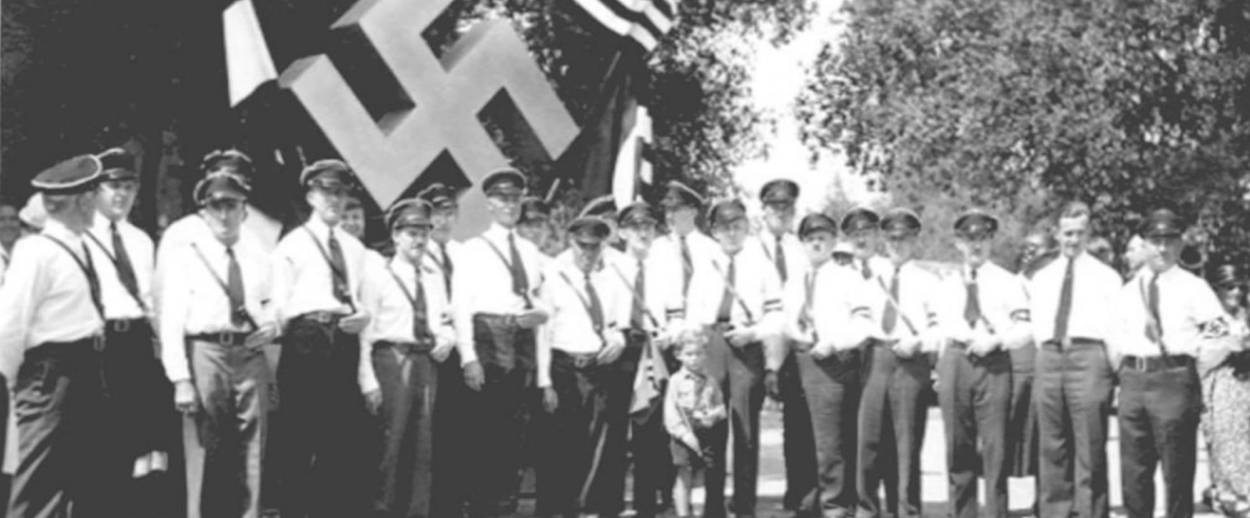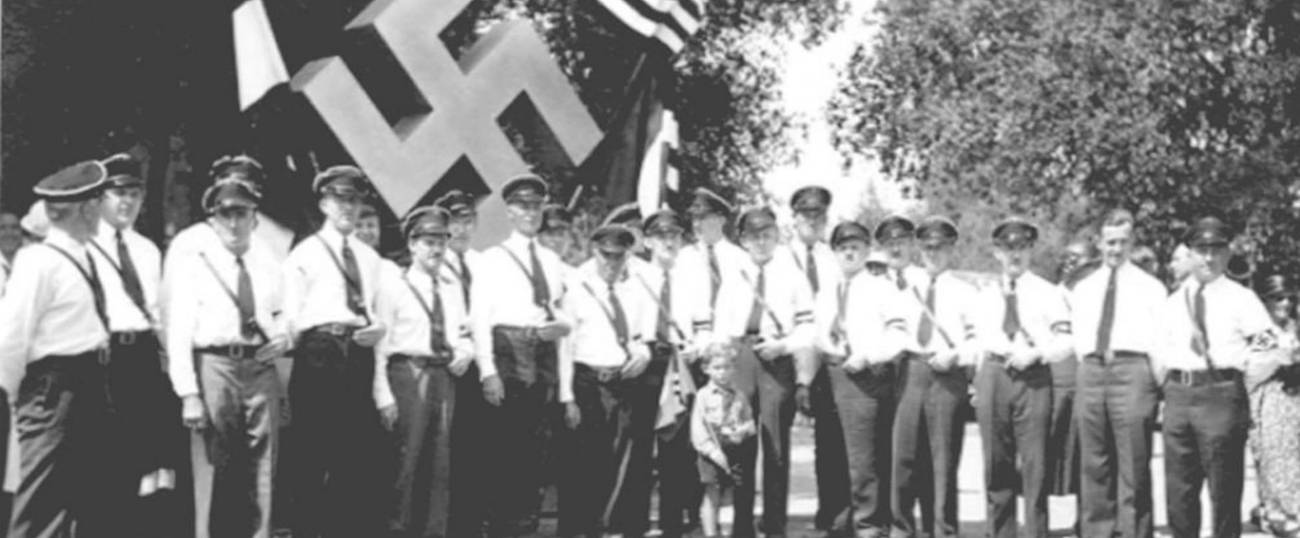New Book Tells Forgotten Story of Hitler’s Failed Hollywood Takeover
And of how a Jewish spy stopped the brownshirts from marching down Wilshire




In 1923, Dietirch Gefken was one of the thugs who marched with his idol, Adolf Hitler, as the latter launched his disastrous Beer Hall Putsch. He was the sort of gentleman who was not above killing the occasional foe or throwing acid in the faces of those who had irked him. Disheartened by his prospects in the Fatherland, Gefken traveled to the United States, where—as a new book, published this week, reveals—he began orchestrating a forgotten but utterly cinematic attempt to take over Hollywood on behalf of his Fuhrer.
Entitled Hitler in Los Angeles, the book, by Steven J. Ross, tells the unlikely story of a takeover foiled by wits, luck, and grit. Criss-crossing America in the 1930s, Gefken doubled as a cook and a Nazi propagandist, making new converts for his cause. He found Los Angeles clement, settling there and leading a stormtrooper unit for the Friends of the New Germany, a Nazi front organization. Cannily, Gefken volunteered for the National Guard, which enabled him to map many of California’s armories, and began buying stolen weapons from colleagues.
His plan, Ross writes, was simple: The committed Nazi had his recruits “secretly training in street fighting and the use of bombs,” the idea being to “launch spontaneous uprisings in San Francisco and San Diego.” American soldiers stateside would be the first to be captured, went the plan. Those who were willing to salute Hitler would be appointed stromtroopers; those who did not would be shot.
One early enthusiast who appeared to need little convincing was a German-born army captain named John H. Schmidt. A blue-eyed blonde, he spent a lot of time in an Aryan bookstore in LA’s San Pedro neighborhood, the sort of place, Ross notes, where folks gathered to chat about how Roosevelt was secretly a puppet of the Jews. Soon, Schmidt was taken in by Gefken and his men, a natural leader in the revolution to come.
There was only one problem: Schmidt was an undercover operative, recruited and handled by Leon Lewis, a Jewish lawyer running a private intelligence ring and aware of the home-grown Nazi threat. The first national executive secretary of the ADL, Lewis, who had served in army intelligence during World War I recognized the urgency of fighting bigotry, and began recruiting Aryan-looking men to go undercover and learn of the enemy’s intentions. Schmidt was his first recruit, and Lewis soon learned precisely who was supplying Gefken with arms. Reporting the offenders, two Marine corporals, to the Navy, he soon brought down the entire Nazi ring.
It was not Lewis’s last hurrah. During the war, Ross writes, other undercover agents uncovered a plot to encourage American Nazi sympathizers to apply for jobs at airplane factories and sabotage the planes before they took off to bomb Germany. That plot, too, was stopped in time, as was an epic plan to assassinate Jewish celebrities, including Louis B. Mayer, James Cagney, Jack Benny, Al Jolson, and Charlie Chaplin, who wasn’t Jewish but who the Nazis, still reeling from The Great Dictator, believed was.
Refusing to take any credit for his work, Lewis died in LA in 1954, succumbing to a heart attack. “From August 1933 until the end of World War II, with few resources at their disposal,” Ross writes, Lewis and his “courageous undercover operatives continually defeated a variety of enemies—Nazis, fascists and fifth-columnists—bent on violence and murder. Without ever firing a weapon, they managed to keep Los Angeles and its citizens safe.”
Liel Leibovitz is editor-at-large for Tablet Magazine and a host of its weekly culture podcast Unorthodox and daily Talmud podcast Take One. He is the editor of Zionism: The Tablet Guide.